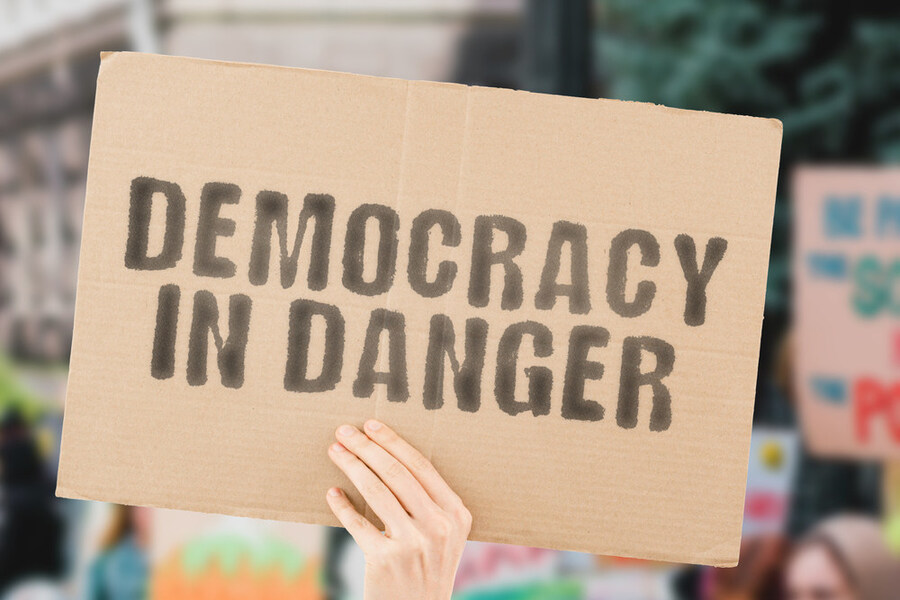

Over the past few years, U.S. democracy has gotten messy. Voting controversies — or at least controversies about how to count votes — have shaken presidential elections and others down-ballot.
The best way to strengthen the U.S. political system is to get more people to vote and to ensure that each of their votes is counted.
When it comes to democratizing investment, however, it may be best if some — or even most — retail investors stay out of the private markets. Unlike going to the polls to cast ballots for elected officials, buying an unregistered security is something that can harm an individual.
Purchasing shares in a promising start-up company, a seemingly can’t-miss energy venture, or a piece of prime real estate, can offer great opportunities for all investors — not just those who qualify as accredited.
Republicans and many Democrats want to expand the definition of an accredited investor beyond the current threshold — an annual income of $200,000 or more, or a net worth of $1 million or more, not counting the value of a home.
Those parameters haven't been changed in more than 40 years. In late April, the House Financial Services Committee approved several bills that would widen the pool of accredited investors. Two of them went to the House floor this week, where they were poised for strong bipartisan approval.
One of the bills would codify certain licenses and other backgrounds that would make investors accredited. Another would direct the Securities and Exchange Commission to develop an examination that would certify as accredited any investor who passes it.
Lawmakers who want more Americans to become accredited call it a matter of fairness. Institutional investors can take advantage of the rapid growth in private markets with direct investments but retail investors for the most part cannot diversify their retirement portfolios with private placements.
They also argue that income and net worth aren't good proxies for investment sagacity.
“I don’t think smart investing is correlated to wealth,” Rep. French Hill, R-Ark., said during the House committee mark-up of the accredited investor bills.
Another lawmaker appealed to libertarian principles to allow more Americans to wade into the private market.
“They should be free to walk into these investments with their eyes wide open,” said Rep. Byron Donalds, R-Fla.
That’s where market democratization becomes a challenge. Investors need to open their eyes through their own research. But they also need substantial protection against the risks inherent in private investments that are often opaque, complex and illiquid.
State securities regulators each year cite private placements as one of the biggest causes of investor harm. The Financial Industry Regulatory Authority Inc. recently kicked out of the industry a small broker-dealer for violating Regulation Best Interest in relation to private-placement initial public offerings.
These problems are occurring with so-called sophisticated investors. The dangers will increase if retail investors surge into private markets. Strong guardrails must be put in place.
One is to substantially improve investor education about both the benefits and risks of private investments.
Unregistered securities can pose dangers to investors because their sponsors don't have the same disclosure requirements that issuers of public stock must meet. But disclosures for complex investments — even those that are available to retail investors — can be almost impossible to understand, as Finra board chair Eric Noll recently said.
Education and disclosure are just a start. Another idea floated at the House markup by Rep. Stephen Lynch, D-Mass., is to limit retail investors' holdings of private investments to 5% of their portfolio.
Another approach is to install investment advisors as the gateway to the private market for their clients. If a retail investor works with an advisor, he or she is automatically accredited. Advisors became accredited through an SEC rule in 2020 that expanded the accredited investor pool.
Making accreditation a transitive property — through advisor to client — is a provision in a capital formation bill written by Rep. Patrick McHenry, R-Texas, and chair of the House Financial Services Committee. The bill advanced to the House floor with strong Democratic opposition, which limits its chances in the Senate.
The SEC could place new restrictions on accreditation through a pending rule proposal. The prospect of additional regulation is motivating Republican lawmakers to push ahead with legislation to expand accreditation.
As regulators and legislators make their moves, the financial industry is extolling the virtues of alternative investments like private placements.
“Alts have gone from a nice-to-have to a need-to-have,” Dave Donahoo, senior managing director at Franklin Templeton, said at a recent Investment Company Institute conference in a session entitled, “Democratization of Alternative Investments.”
What all investors — accredited and retail — need is stronger protection before they vote for private investments in their portfolios.

New joint research by T. Rowe Price, MIT, and Stanford University finds more diverse asset allocations among older participants.

With its asset pipeline bursting past $13 billion, Farther is looking to build more momentum with three new managing directors.

A Department of Labor proposal to scrap a regulatory provision under ERISA could create uncertainty for fiduciaries, the trade association argues.

"We continue to feel confident about our ability to capture 90%," LPL CEO Rich Steinmeier told analysts during the firm's 2nd quarter earnings call.

It's the mega-RIA firm's third $1B+ acquisition in just three months.
Orion's Tom Wilson on delivering coordinated, high-touch service in a world where returns alone no longer set you apart.
Barely a decade old, registered index-linked annuities have quickly surged in popularity, thanks to their unique blend of protection and growth potential—an appealing option for investors looking to chart a steadier course through today's choppy market waters, says Myles Lambert, Brighthouse Financial.
